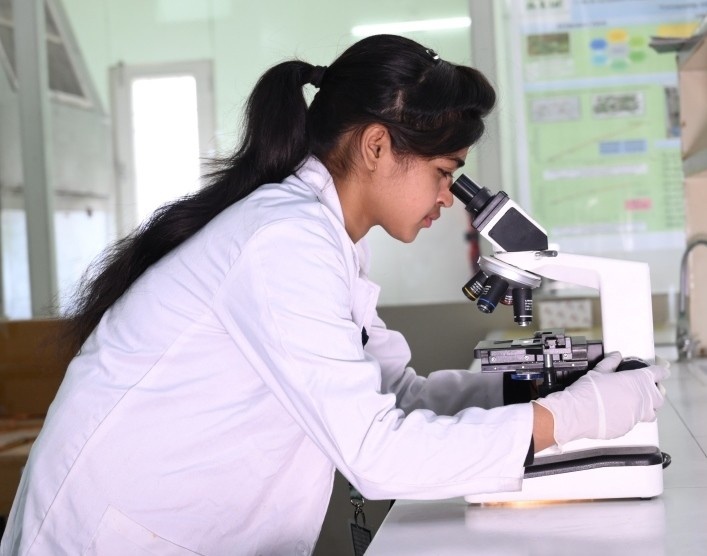Dr. B. Lal Institute of Biotechnology: Courses & Training Centre
At Dr. B. Lal Institute of Biotechnology, we firmly believe that research is a fundamental aspect of education and is best learned through hands-on experience. That's why we actively promote research opportunities for both our faculty and students, with a focus on both basic and applied research. Our research efforts are focused on various fields of biotechnology, including medical and clinical microbiology, molecular diagnostics, environment biotechnology, plant tissue culture, biochemistry, immunology, and advanced genetic engineering, among others.
To further our research goals, the institute has established the Centre for Innovation, Research & Development (CIRD) to foster excellence in research and innovation. Our state-of-the-art interdisciplinary laboratories provide an ideal setting for conducting cutting-edge research in biotechnology, and we are proud to be actively involved in a number of path-breaking innovation projects that have a real-world impact on society.


To cultivate a culture of research at the institute, we provide various incentives and opportunities to our faculty members such as teaching workload remission, internal mural grants, mini-incubatorship grants, and opportunities for attending conferences and workshops. We also offer hands-on training as a part of the Faculty Development Program. Our faculty members are encouraged to undertake research by collaborating with other research organizations and industry partners.
In conclusion, Dr. B. Lal Institute of Biotechnology is dedicated to promoting research and innovation in the field of biotechnology through an interdisciplinary approach. We strive to provide our students and faculty members with the tools and resources they need to excel in their research efforts and make meaningful contributions to their field.
Medical biotechnology is an interdisciplinary field that combines the principles of biotechnology and medicine to develop new treatments, diagnostic tools, and vaccines for human diseases. The research themes in medical biotechnology include:
Plant and agricultural biotechnology involves the application of biotechnology principles to the improvement of crop plants and the development of new agricultural products and practices. The research themes in this field include:
Environmental biotechnology is a field that applies biotechnology principles to solve environmental problems and promote sustainable development. The research themes in this field include:
These research themes highlight the diversity of research areas within the broad field of biotechnology and the important contributions that biotechnology can make to solving some of the world's most pressing environmental and health problems.